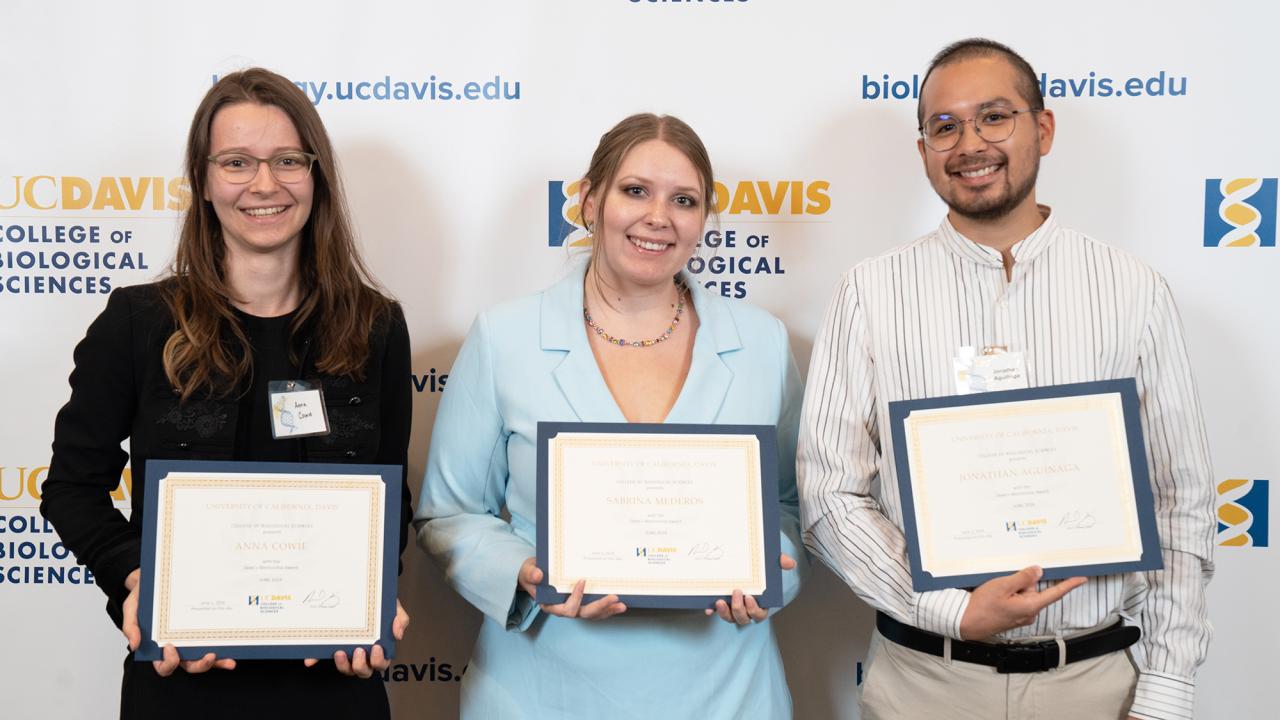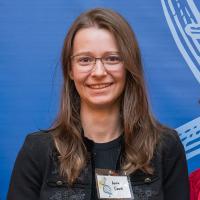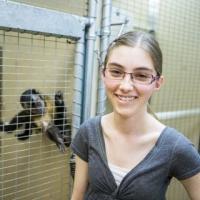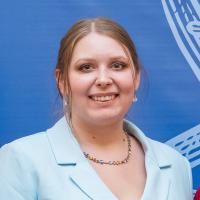
Graduate Student Mentors Recognized for Positive Impact, Influence in Training Young Scientists
Made possibly by philanthropy, annual awards celebrate excellence in mentorship
Each year the college recognizes the importance of mentorship in the continued growth of both the undergraduate and graduate communities by awarding CBS Dean’s Mentorship Awards to graduate students. Funded by contributions to the CBS Dean’s Circle, the awards are open by faculty nomination to graduate students who have played a significant role in the growth and development of the younger generation of scientists.
“Each of this year’s graduate mentorship awardees represents the very best of the college, and of our campus,” said Mark Winey, dean of the college. “Their commitment to supporting the undergraduate students in their labs and classes helps ensure the ongoing excellence and advancement of the life sciences at UC Davis.”
Each awardee receives a cash prize of $5,000, which includes a $2,500 contribution to their labs to be used to support continued research experience of undergraduate mentees.
Meet this year’s awardees:

Jonathan Aguiñaga
Population Biology Graduate Group
Jonathan Aguiñaga has mentored five UC Davis undergraduates, guiding them through independent research projects and significantly contributing to their academic and professional development. His mentees have shown long-term commitment, with two pursuing graduate studies in biology, a testament to the transformative impact of his mentorship. Aguiñaga has also made significant contributions to the UC Davis Young Scholars Program, mentoring students who developed and presented independent research projects on the behavior of the Amazon molly (Poecilia formosa), with one project even submitted for publication in the journal Ethology.
Aguiñaga’s research explores the behavioral drivers of animal grouping through experiments, mathematical modeling, computer vision, machine learning, and neurobiology. Jonathan also investigates differential gene expression in brains exposed to various experimental treatments. With a master’s degree in biology focusing on behavioral ecology, he is committed to mentoring underrepresented students in experimental design and data analysis.
“Jon is an incredible role model for his mentees. He is a first-generation American and first-generation college student. He continually goes the extra mile to ensure his students feel supported and this shows in the level of dedication they give to each project. Jon is on a path to success in academic research and I know he’ll bring along as many other budding researchers with him as he can.” — Kate Laskowski, assistant professor, Department of Evolution and Ecology.

Anna Cowie
Plant Biology Graduate Group
Anna Cowie is a dedicated mentor who trained six undergraduate students in techniques like metabolite extraction and molecular cloning, and assisted them in securing prestigious positions and fellowships. Cowie also co-instructed a Course-based Undergraduate Research Experience (CURE) class and assisted in teaching a Biotechnology workshop with IKIAM Amazon Regional University in Ecuador. She is currently leading a collaborative initiative to expand this workshop into an online journal club, fostering international networking and knowledge exchange. Her leadership in preparing a Global Affairs Seed Grant proposal to fund this project demonstrates her commitment to innovative science and education.
Cowie’s research focuses on unraveling the regulatory network that governs diterpenoid metabolite biosynthesis, which plays a critical role in maize growth and defense against microbial diseases. She has identified 50 transcription factors involved in this process and is conducting functional analyses through yeast-1-hybrid assays and CRISPR-Cas9 mutants.
“Anna is a highly talented young scientist, who has a palpable passion for research, mentoring, and outreach along with a keen interest in applying her skills to innovative science for a healthier planet. She is an outstanding young community member and mentor.” — Philipp Zerbe, Professor, Department of Plant Biology

Meredith Lutz
Animal Behavior Graduate Group
Meredith Lutz has been an exemplary mentor for numerous undergraduate students. She has overseen two senior honors theses, a senior practicum, and a research project that culminated in a peer-reviewed publication with an undergraduate lead author. Her leadership also extended to conducting a large-scale meta-analysis, training and supervising 226 undergraduate students, and mentoring 34 additional research interns. Lutz’s dedication to mentorship and teaching has been an unwavering facet of her time as a graduate student at UC Davis.
In her research, Lutz specializes in primatology, with a focus on the behavior and conservation of lemurs. Her research explores the social dynamics, communication patterns, and ecological adaptations of lemur populations in Madagascar, aiming to inform conservation strategies and enhance understanding of primate evolution. She has conducted extensive field research, including at the Ankoatsifaka Research Station in Madagascar.
“Meredith is an exceptional mentor and a great teacher. She is a gifted student and researcher, and an exceptional mentor for UC Davis undergraduate students.” — Damien Caillaud, associate professor, Department of Anthropology

Sabrina Mederos
Animal Behavior Graduate Group
Sabrina Mederos has demonstrated exceptional dedication to mentorship and scientific outreach. Formerly a McNair Scholar, Mederos continues to give back to the program by mentoring current scholars. She extends her mentorship to other initiatives such as Avenue B, which assists transfer students transitioning into research, and the MMP HArCSS program, designed to introduce students to academic research. Beyond these formal programs, Sabrina leads and mentors undergraduates in her laboratory. She has organized monthly meetings to guide students through their research projects, offering training and fostering collaboration among them. Her commitment to education is further evidenced by her public outreach efforts. She has delivered presentations about STEM careers to various K-12 schools around Davis and serves as an editor for The Ethogram, the blog of the Animal Behavior graduate group.
Mederos’s research focuses on the unique courtship behaviors of lined seahorses (Hippocampus erectus). Her works aims to provide a better understanding of the seahorse brain through examining both the neuroanatomy and expression of genes related to both pair bonding and brain organization.
“At a very early stage in her career, Sabrina has already contributed to science education immensely, both through direct mentorship of undergraduates as well as science outreach both to younger people and the community in general.” — Karen Bales, professor, Departments of Psychology, and Neurobiology, Physiology and Behavior
